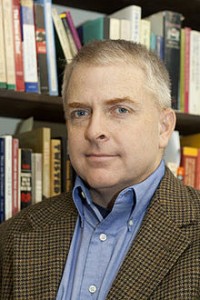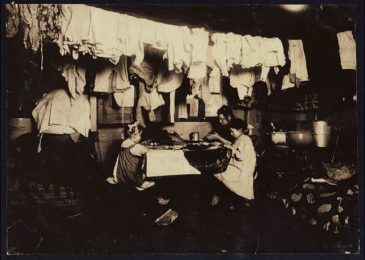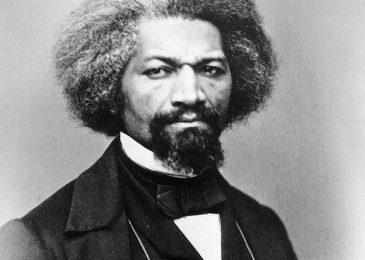In today’s post, I am interviewing Thomas Albert (Tal) Howard about how Christians should think about the Reformation, on the eve of its 500th anniversary year. Howard has recently written Remembering the Reformation: An Inquiry into the Meanings of Protestantism (Oxford, 2016), and, co-edited with Mark Noll, Protestantism after 500 Years (Oxford, 2016). Howard is professor of humanities and history and holder of the Phyllis and Richard Duesenberg Chair in Christian Ethics at Valparaiso University.
There will be many commemorations of the Reformation in 2017. Some will be mostly celebratory, some will look back on the Reformation with mixed feelings. How do you think Protestants should remember the Reformation in the upcoming anniversary year?
I think the key thing to keep in mind as we look ahead to October 31, 2017, is the sheer complexity of the Reformation. Understood in historical terms, the Reformation encompassed an enormous range of religious, political, cultural, and social upheavals, which for the sake of convenience we attach to the posting of Martin Luther’s 95 Theses in 1517. My co-editor, Mark Noll, and I have latched onto a phrase by the late church historian Jaroslav Pelikan, who once said that the Reformation is helpfully understood as a “tragic necessity.” Over the centuries, Protestants have emphasized the “necessary” part, while Catholics have emphasized the “tragic” part.
Thomas Albert Howard
In 2017, it would be nice—and arguably even an act of faithful obedience as the gospel mandates the unity of all believers—if Protestants at least made efforts to understand its tragic dimensions; destructive iconoclasm and the eruption of religious wars in the 16th and 17th centuries would be two examples. At the same time, Catholics should make efforts to understand why, then and now, Protestants have felt it was necessary. By recently meeting with Lutherans in Sweden to kick off this year of commemorations, Pope Francis has made at least some effort to take Protestant perspectives into consideration. Protestants should reciprocate. But this does not mean papering over genuine theological differences, for this serves neither truth nor Christian unity.
You note that people have been commemorating the Reformation since at least 1617. What struck you about the way the Reformation was remembered in those earlier anniversary years?
The first two centennial commemorations of the Reformation, in 1617 and 1717, were marked by what early-modern historians call “confessionalization,” and they took place almost exclusively within the Holy Roman Empire (the complex political entity in central Europe before the emergence of modern Germany). “Confessionalization” signifies a tight relationship between the territorial secular magistrates and the church to articulate and defend a particular theological point of view—the chief three then being Lutheran, Reformed (Calvinist), and Catholic. Obviously, Catholics did not celebrate the Reformation, although they did not miss the opportunity to deride Protestants for doing so.
In 1617 and 1717, some “ecumenical” outreach between Lutherans and Calvinists took place, but mostly these two expressions of Protestantism went their separate ways. Permit me to note here that only in 1617 did the year “1517” become the agreed-upon year to remember the Reformation as a whole. Why this happened then remains something of a mystery. In the late-16th century, Luther’s birth, death, and baptismal dates had been marked, but not the 95 Theses. What is more, the events of 1617, some scholars have argued, launched the distinctly modern tradition of lavishing marking centennial anniversaries—of anything. People in the Middle Ages did not possess such historical consciousness.
Tell me more about the role that Lutheran-Calvinist tensions played in the early commemorations. Are there intra-Protestant tensions that Christians will have to negotiate in 2017?
Commemoration tends to awaken questions about identity. In 1617 and 1717, there was some ecumenical outreach between Lutherans and Reformed, as I mentioned earlier, but not much. Lutherans have tended to see themselves as the primary custodians of the Reformation’s memory—at least of the 95 Theses. Overall, I think the deeply bitter confessional polemics between Lutherans and Calvinists are a thing of the past. And this is a good thing. But I suspect vestiges of this old enmity will surface in 2017.
Some Reformed scholars, for example, have already worried that commemorations planned in Germany are far too “Luther-centric” and that they ought to be broadened to consider other aspects of the Reformation. How the Church of England and churches descending from Anabaptist communities will handle the occasion—and whether they will mark it all–is another relevant item of interest.
You suggest that while the 1617 and 1717 commemorations were fairly similar, 1817 “cracked the mold.” How so?
The tri-centenary commemoration of 1817 took place after several truly watershed historical developments: the 18th-century Enlightenment, the American and French Revolutions, and the Napoleonic wars. These gave birth to ideologies that historians generally call “liberalism” and “nationalism.” The former we associate with a progressive view of history, government by the people, constitutionalism, freedom of conscience, freedom of the press, and the like. The latter we associate with ethnicity, land, and language as the basis of political identity—not the hereditary privileges of a monarchy.
Given these large socio-political shifts, it should not be surprising that Reformation commemorations were imbued with liberal and nationalist sensibilities. Older religious reasons for remembering the Reformation did not vanish, of course, but intermingled with them were ideas that, for example, defined the Reformation as the birthplace of modern liberty or connected the Reformation with German national identity. The nationalist dimension was especially strong in Germany in the 19th century—not only in 1817, but at the 400th anniversary of the Luther’s birth in 1883 and also in 1917 when historically Protestant powers were at war with one another.
How did Luther become an ancestor venerated by virtually all American Protestants, not just Lutherans?
In 1817, mainly Lutheran emigrant communities celebrated the Reformation in the “New World.” But that changed by 1883 when Luther’s birth year was marked. Then, all types of Protestants jumped on the commemoration bandwagon. Several factors help explain this shift. The long-term effects of the watershed developments mentioned above is one of them. The existence of pan-Protestant organizations such as the Evangelical Alliance of the United States, which brought Protestant bodies together for common purposes, represents another consideration.
Finally, “nativist” worries about emigration to the United States from Catholic countries often created a feeling of solidarity across divisions within American Protestantism. This sense of solidarity led Protestants to associate Catholicism with all things “medieval,” “superstitious,” “monarchical,” and “backward,” while Protestantism was associated with (American) republican government and the advance of modern liberty. As one enthusiastic Protestant commemorator wrote in 1883: “If there had been no Luther in Germany, there would have been no [George] Washington in America.”






